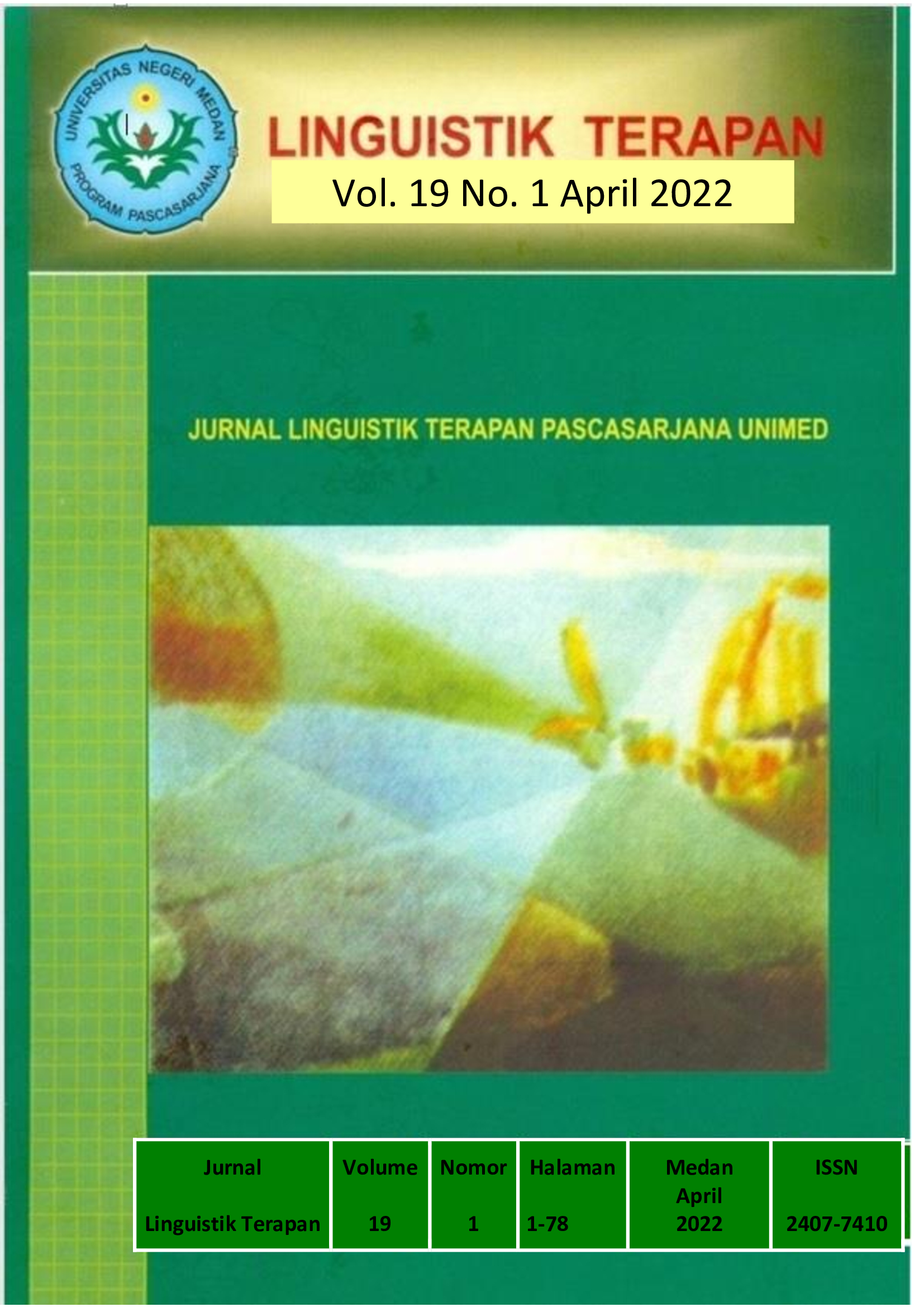The Effectiveness of Google Classroom in Learning
DOI:
https://doi.org/10.24114/lt.v19i1.34327Keywords:
Students’ Perceptions, Google Classroom, Learning, EffectivenessAbstract
Since the present of Corona virus, all aspects of human live are changed. This also happened in education field. Because of this pandemic, students and teachers have to do online learning. Online learning by utilizing technology demands innovation and creativity in learning activities. One way that can be used to do the learning process online is using Google Classroom digital media. The aim of this study is to evaluate Students™ perceptions on the effectiveness of Google Classroom as a Digital tool in Teaching and Learning. The study was conducted through a descriptive qualitative with Survey Research Design to investigate the Students™ Perceptions. Data analysis was conducted using Descriptive Statistics. The results of the study indicated that Google Classroom is effective in improving Students access and attentiveness towards learning, knowledge and skills gained through Google Classroom. Make Students to be active learners, as a Digital Tool, it provides meaningful feedback to both Students and Teachers.References
Bell, K. (2015). The Teacher™s Guide to Google Classroom.
Fahrurrozi, U. Hasanah, R. S. D. (2019). Integrated Learning Design Based on Google Classroom to Improve Student Digital Literacy-5th International Conference on Education and Technology (ICET), Malang, Indonesia.
Geertsema, J. (2014). Technology and the Role of the Teacher. CDTL Brief, 17 (1), 2-3.
Keane, D. T. (2012). Leading with Technology. The Australian Educational Leader, 34 (2).
Mafa, K. R. (2018). Capabilities of Google Classroom as a Teaching and Learning Tool in Higher Education.
Nizal, I., Shaharanee, M., Jamil, J. M., Syamimi, S., & Rodzi, M. (2016). The Application of Google Classroom as a Tool for Teaching and Learning, 8 (10), 5“8.
Salavati, S. (2013). Novel Use of Mobile and Ubiquitous Technologies in Everyday Teaching and Learning Practices: A Complex Picture. Licentiate. Linnaeus University, Sweden. Växjö: Linnaeus University Press. (2013).
Salavati, S. (2016). Use of Digital Technologies in Education: The Complexity of Teachers™ Everyday Practice. Department of Informatics, Linnaeus University, Växjö, Sweden: Doctoral dissertation.
Downloads
Published
How to Cite
Issue
Section
License
Copyright (c) 2022 Nurul . Khoiriyah, Anni Holila Pulungan

This work is licensed under a Creative Commons Attribution-ShareAlike 4.0 International License.






